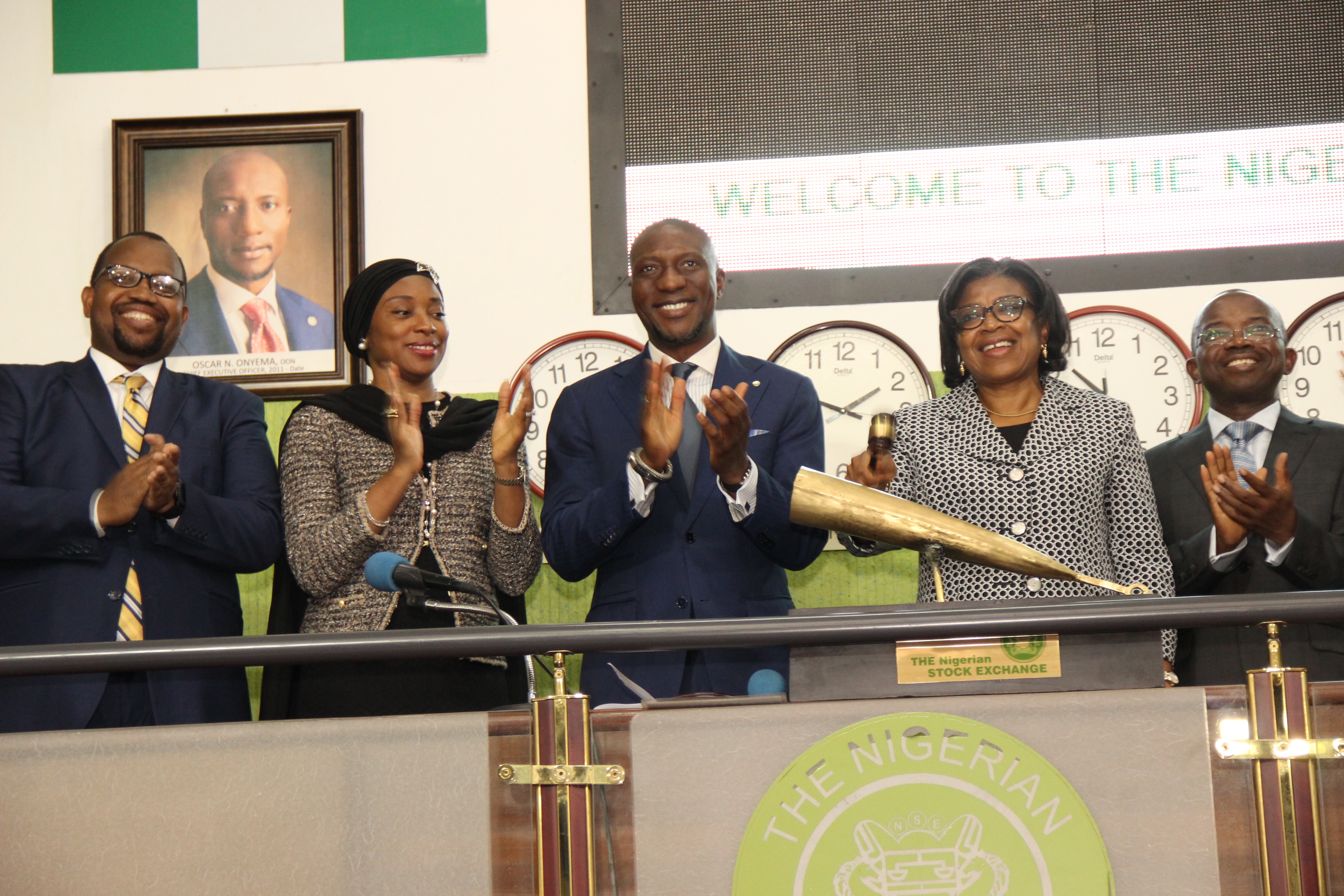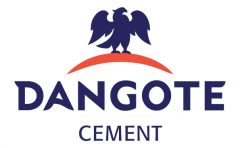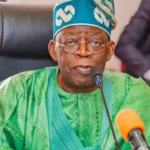
Caption: From left, Oladele Afolabi, Director, Portfolio Management, Debt Management Office (DMO); Mrs. Hajara Adeola, Managing Director/CEO, Lotus Group; Oscar Onyema, Chief Executive Officer, The Nigerian Stock Exchange (NSE); Ms. Patience Oniha, Director General, DMO and Taiwo Okeowo, Deputy Managing Director, FBNQuest Merchant Bank during the Facts Behind the Lists of Federal Government Sukuk at the Exchange on April 10, 2018.
Oscar Onyema, chief executive of the Nigerian Stock Exchange (NSE), on Tuesday described the huge domestic participation in the just concluded N100bn maiden FGN Ijara Sukuk Bond is a show of investor confidence have in the Nigerian economy and markets.
The bond with a 7-year tenor, at the rate of 16.47%, which was oversubscribed, he said, opens up new financing windows for prospective issuers of capital, seeking more cost-effective means to diversify their funding sources.
Welcoming the Mrs. Patience Oniha, Director General of the Debt Management Office (DMO), her team and members of the capital market community to the Facts behind the listing ceremony of bond, on the NSE, Onyema congratulated the DMO on the successful bond issuance.
The N100bn FGN Sukuk, he continued, was “issued to fund the development and rehabilitation of key economic roads in the six geo-political zones of the country.”
He lauded the DMO for working over the years to develop well-functioning debt markets thereby bridging “the long-term financing gaps in the expenditure outlays of the Federal Government at cheaper and more sustainable costs. Through the issuance of the FGN Savings Bonds for example, the DMO has raised over N7bn from the domestic market since March 2017.
“The $1.5bn, 30-year, FGN Eurobond and the $1.5bn, 10-year FGN Eurobond issued in November last year by the DMO gathered an estimated bid size of $11bn and marked the largest ever Eurobond sale, as well as the longest-ever bond maturity issued by the Federal Government.
“Furthermore, the DMO’s subsequent issuance of the N10.69bn, FGN Green Bond in December 2017, the first by an African Sovereign and the first Climate Bonds Certified Sovereign Bond ever issued, underscores the Federal Government’s commitment towards achieving the nation’s climate change objectives,” he added.
With the rise noticed in demand for sustainable and more responsible investing in the global economy, he said there is emerging also a significant increase in the development of alternative asset classes.
With an industry that has grown from an estimated asset size of $2.1tr in 2014 to $3.4tr projected for 2018, Onyema said “the central underpinning of Islamic Finance is in the promotion of ethical and responsible investment principles. Increased awareness about ethical investing, changing demographics and rising populations, as well as increased infrastructural requirements.
“This has strong implications for emerging and frontier markets which continually seek to unlock dormant pools of capital needed for economic growth and development, particularly as these economies have larger infrastructural deficits and relatively stronger demographics in favour of Islamic Finance, than developed markets.
He congratulated the entire DMO team for the sustained commitment “to coordinating the management of Nigeria’s debt, raising funds for financing government projects, and developing our Capital Markets.
“This (sukuk bond) listing lends credence to our commitment to championing and advocating for the growth of our Debt Capital Markets. With a diversified investor base, our market offers issuers and their products access to capital and visibility, whilst delivering transparency and liquidity to investors,” he added.















